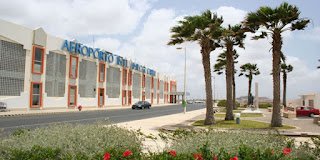Cape Verde Property Investment
The Cape Verde Islands are located about 400 miles off the west coast of Africa, in the Atlantic Ocean, and are composed of two groups – the northern group, Barlavento, contains six islands, and the southern group, Sotavento, has four. Until recently, very few people had heard of these islands, but in the last couple of decades they have become increasingly popular as a tourist destination. For this reason, the investment potential of Cape Verde property is becoming more and more apparent to both developers and investors.
Overseas Property
Overseas property has always been seen as an attractive investment, but in recent decades the most popular markets have appeared increasingly saturated, and some have even collapsed. Cape Verde property, being in the early stages of development, is looking like the ideal alternative. Currently, properties here can be obtained at prices that could only be dreamed of in other popular locations.
Up till about 20 years ago, the Cape Verde islands were very much off the tourist trail, with only a few discerning travelers making the roundabout journey via Lisbon, Portugal. Now, however, with airports being built in three of the islands, more and more people are becoming aware of the area’s stunning natural beauty, paradise beaches, and perfect year-round climate, making it the ideal unspoilt holiday destination. As this awareness grows, property developers are already beginning to see the potential, as demand for holiday accommodation already exceeds supply. This provides an unprecedented opportunity for investors in Cape Verde property to get in on the ground floor, with prices set to increase substantially as demand grows.
Types Of Cape Verde Property
 The main types of Cape Verde property which are currently being developed are rental accommodation, holiday homes, and retirement real estate. Investors on both sides of the Atlantic are showing interest, as the islands are just 5.5 hours’ flying time from both the UK and the eastern seaboard of the USA. Because of the rapidly rising prices, a popular investment strategy is short-term investment, or flipping. This is a tax-efficient way of investing, as purchase tax is not payable until completion of the sale, so it can be paid out of the profits. However, as mortgages are not generally available in Cape Verde, short-term investors need to have finance in place before proceeding. In fact, potential returns are even more attractive nowadays for mid and long term investors. As the infrastructure improves and the tourist industry becomes more developed, the properties are likely to appreciate in price, and the appreciation seems likely to accelerate.
The main types of Cape Verde property which are currently being developed are rental accommodation, holiday homes, and retirement real estate. Investors on both sides of the Atlantic are showing interest, as the islands are just 5.5 hours’ flying time from both the UK and the eastern seaboard of the USA. Because of the rapidly rising prices, a popular investment strategy is short-term investment, or flipping. This is a tax-efficient way of investing, as purchase tax is not payable until completion of the sale, so it can be paid out of the profits. However, as mortgages are not generally available in Cape Verde, short-term investors need to have finance in place before proceeding. In fact, potential returns are even more attractive nowadays for mid and long term investors. As the infrastructure improves and the tourist industry becomes more developed, the properties are likely to appreciate in price, and the appreciation seems likely to accelerate.
Although properties are being developed both on the coast and inland, most investment advisers suggest beachfront property is the better investment. The most popular locations for Cape Verde property are on the northern island of Sal, around the resort of Santa Maria, and also Boa Vista and Sao Vicente in the north, and Maio in the south. The main island of Santiago is the one that is being most rapidly developed. The majority of properties are available to buy off plan, which is the cheapest way to buy and has the highest return on investment, but also carries the highest risk.
Currently, Cape Verde property offers a unique investment opportunity of a kind that is available nowhere else in the world. Of course, every investor must be aware of the risks, and needs to research the competitive possibilities of any site, to assess the profit potential. However, all the market predictions are that prices generally are set to increase, and that this will be a continuing trend for the foreseeable future.





I've surfed the net more than three hours today, and your blog was the coolest of all. Thanks a lot, it is really useful to me
The author appears to be completely unaware that most developers in Cape Verde are effectively bankrupt. The few that continue to struggle on are years behind on their completion dates. Many resorts may never be finished. Nobody should provide this sort of advice so recklessly without having cisited and checked on financial health.